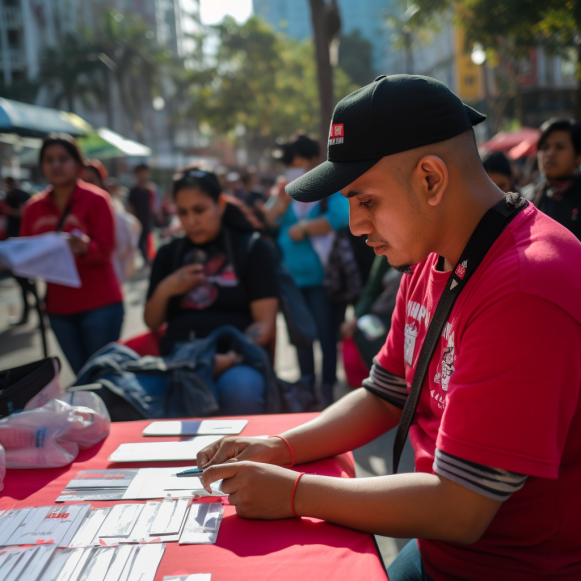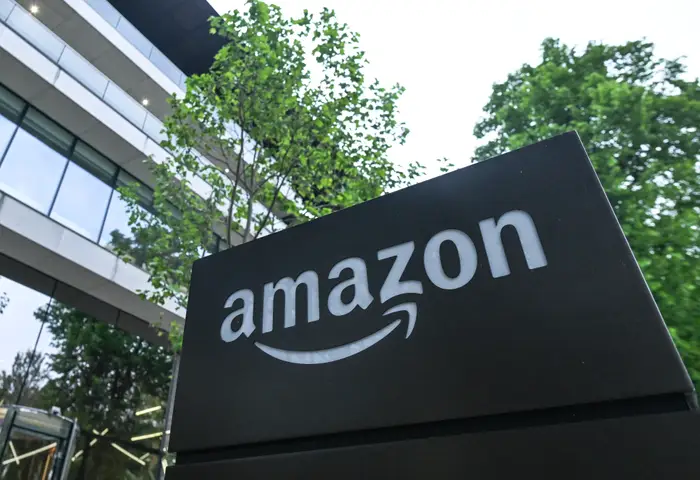US to cover HIV prevention drugs for older Americans to stem spread of the virus

A proposed federal policy aims to protect older Americans from contracting HIV by providing free preventive medication, the latest effort to catch up with much of Europe and Africa in combating the virus’s spread.
The Biden administration’s plan would cover the full cost of preexposure prophylaxis drugs, which prevent HIV transmission. The drugs, abbreviated “PrEP,” would be available for free in pill form and, for the first time, as long-acting injectables through the government insurance program for those 65 and older. People aged 50 and up account for half of all HIV-positive people in the United States.
The proposed policy change represents a significant shift because it means that even new long-acting injectable versions of PrEP drugs, which can cost more than $20,000 per year in the United States, would be fully covered, with no copayments required from patients. However, it is unclear what the plan would mean for taxpayers, either in terms of paying for the medications or offsetting the costs of caring for fewer HIV patients in the future.
The final approval for the plan was expected on Oct. 10, but the Centers for Medicare & Medicaid Services said it is still working out the details of how to transition coverage for patients who are already taking the drugs.
The United States is decades behind nations in Europe and Africa in their efforts to eliminate new HIV infections by 2030. However, while the proposal should reduce infections among older Americans, it also highlights remaining inequities: Many people under the age of 65 will continue to struggle to afford PrEP. Simultaneously, Republican congressional leaders have threatened to cut funding for a federal HIV prevention effort championed by the Trump administration and intended to assist all at risk.
“In the United States, we’ve done a very poor job of ensuring that people who could most benefit from PrEP have access to it,” said Justin Smith, director of the Campaign to End AIDS at Positive Impact Health Centers in Atlanta.
Though gay and trans Americans have embraced PrEP, it is prescribed less frequently to heterosexuals over 50 or women of any age. According to the Centers for Disease Control and Prevention, only 8% of the more than 300,000 people receiving PrEP in the United States in the first three months of this year were women. The racial disparity is also significant: while 66% of white people eligible for PrEP received prescriptions during that time period, only 8% of Black people and 17% of Hispanic people did.
Broadening access for gay and bisexual men of color, as well as straight and cisgender women of color — particularly Black women, who account for the majority of HIV-positive women in the United States as well as the majority of new infections among women — is critical for the country to catch up with the rest of the world, according to Smith.
PrEP, a critical HIV prevention tool, is not reaching black women.New HIV infections affect Black women disproportionately, but exclusionary marketing, fewer treatment options, and provider apprehension have hampered uptake of preexposure prophylaxis, or PrEP, drugs, which reduce the risk of contracting the virus.
According to Leisha McKinley-Beach, a national HIV consultant and CEO of the Black Public Health Academy, which prepares Black health department employees for leadership positions, Medicare’s proposal to cover the cost of injectable PrEP could help many women because a shot given every two months is easier to manage than a daily pill.
But it’s only the beginning. She and others are advocating for a national PrEP plan that would build on the momentum generated by the recent Medicare proposal to expand free access to other age groups, similar to how covid-19 vaccinations were expanded. McKinley-Beach also wants the US government to spread the message that anyone can get HIV, encourage drug companies to spend more money on television advertising to women of color, and fund outreach to dispel medical mistrust in communities of color.
“Gay white men have had a narrative of dignity and respect with regards to HIV treatment, and I would never want to change that narrative,” she went on to say. “However, the message must be broadened.” The current HIV prevention model is harmful to Black women who could benefit from PrEP 42 years into the HIV epidemic.”
Despite being the first country to approve PrEP in 2012, the United States now lags behind the rest of the world in terms of equitable access. This is due primarily to the high cost of laboratory tests and medical visits. While the generic form of Truvada, an oral form of PrEP, can cost as little as $30 per month in the United States, according to a study by University of Virginia researchers, the cost of starting PrEP is typically around $2,670 for uninsured patients, including about $1,000 for lab tests and medical visits. The new Medicare proposal would cover up to seven counseling visits for HIV risk assessment and reduction every 12 months.
Meanwhile, PrEP pills are free in the United Kingdom and other European Union countries such as France, Germany, Sweden, and Denmark. Those countries do not yet cover the more expensive shots, though the United Kingdom is leading a small trial of injectable PrEP in people who cannot take it as a tablet.
In terms of overall HIV treatment and prevention, the United States lags behind Western Europe and some African countries. According to the U.S. government website HIV.gov, only 57% of HIV-positive Americans have achieved viral suppression, which means they regularly take medications that prevent them from transmitting the virus. According to HIV experts, this makes PrEP, which is for people who do not have the virus, all the more important for Americans to remain negative.
In Africa, Botswana, Eswatini (formerly Swaziland), Rwanda, Tanzania, and Zimbabwe have already met the United Nations’ “95-95-95” targets set for 2025: 95% of people with HIV know their HIV status, 95% of people with diagnosed HIV infection receive sustained antiretroviral therapy, and 95% of people receiving antiretroviral therapy have achieved viral suppression, or the virus is undetectable in their blood.
In the United Kingdom, 98% of HIV-positive people have achieved “undetectable” status thanks to free antiretroviral medicines and treatment made available through the National Health Service, the country’s universal health care program. Furthermore, nearly anyone in the United Kingdom who is HIV-negative and wants to take PrEP can do so for free. The United Kingdom claims to be on track to cut new HIV infections by 80% by 2025.
The United Kingdom changed its approach to PrEP after Greg Owen launched “iwantprepnow.co.uk,” a website that sparked a PrEP movement by allowing people in the United Kingdom and Europe to self-source low-cost generic forms of Truvada, the first drug approved as PrEP, from pharmacies in Hong Kong and India.
“It became more affordable,” said Owen, who is now the PrEP lead at Terrence Higgins Trust, one of the UK’s leading HIV and sexual health charities. “Soon people demanded it for free on the NHS.”
According to Smith, the lack of a national PrEP program that would make the drugs and associated bloodwork free, as well as a tense political climate surrounding health care, have hampered HIV outreach in the United States.
“In rural areas of the South, especially in places like Georgia or Tennessee, there has been outright hostility toward accepting money from the CDC and expanding Medicaid to treat and prevent HIV,” Smith went on to say. “People think it’s just politics, but this is having an impact on public health, on people’s lives.”
According to Richard Elion, director of clinical research at Washington Health Institute and professor at George Washington University School of Medicine and Health Sciences, anti-queer sentiment in many quarters creates an environment of hostility around overall sexual health. “There’s a chilling effect for everyone, not just queer Americans,” he went on to say.
According to Elion, shame about sex and the sense of vulnerability that some people experience when taking any medicine may reduce PrEP uptake among older Americans. “Taking PrEP is actually very empowering, and that needs to be the message,” he went on to say.






